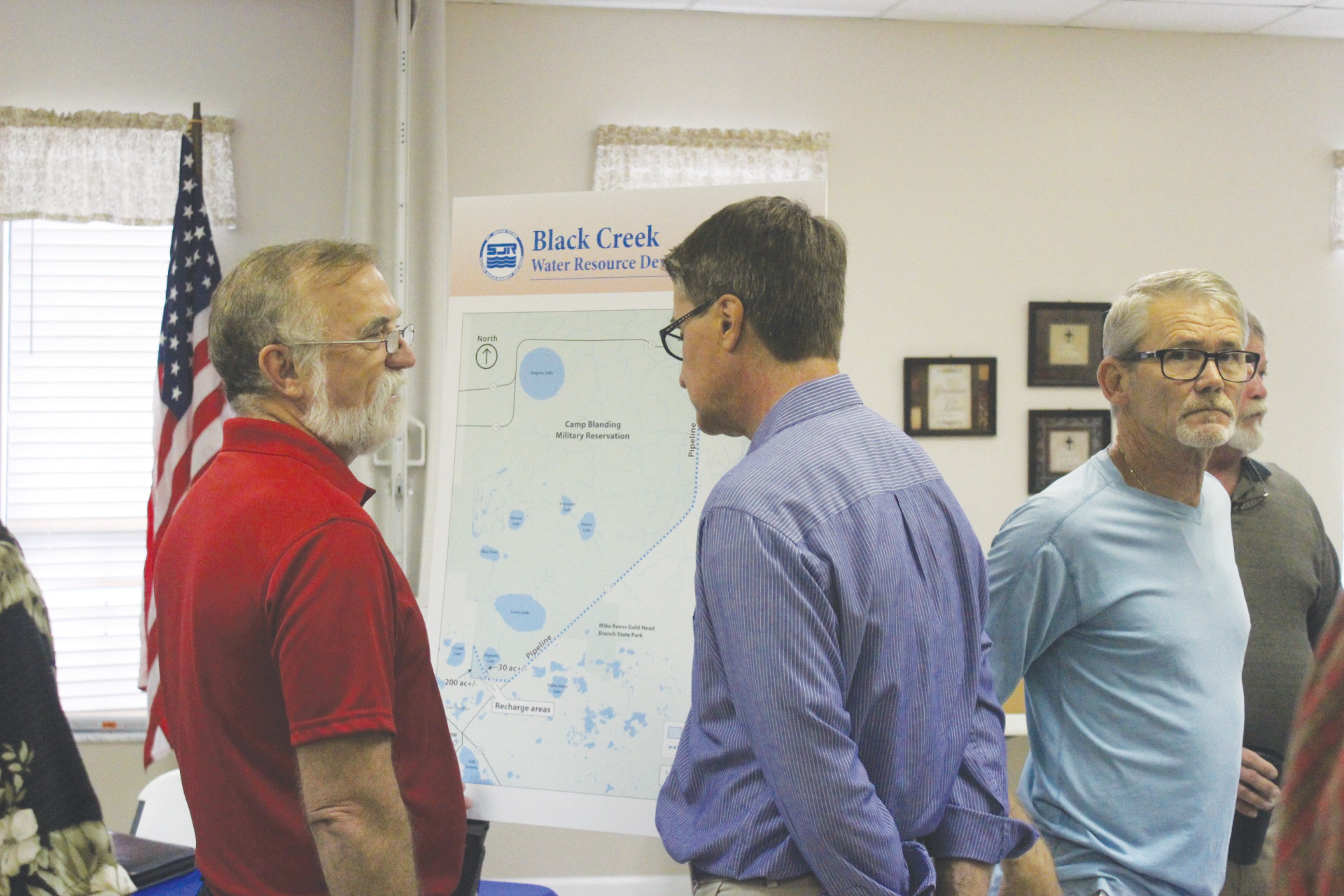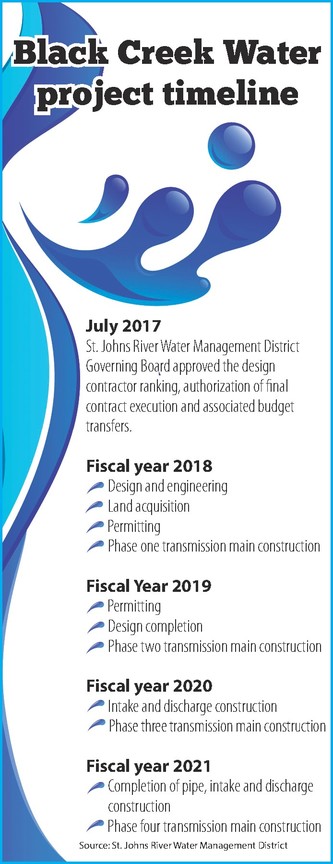Lake Region gets update on Black Creek project
KEYSTONE HEIGHTS – First Baptist Church of Keystone Heights overflowed Monday with residents who want to see the water levels reach new heights.
Standing room only, residents crammed into every …
This item is available in full to subscribers.
Attention subscribers
To continue reading, you will need to either log in to your subscriber account, or purchase a new subscription.
If you are a current print subscriber, you can set up a free website account and connect your subscription to it by clicking here.
If you are a digital subscriber with an active, online-only subscription then you already have an account here. Just reset your password if you've not yet logged in to your account on this new site.
Otherwise, click here to view your options for subscribing.
Please log in to continueDon't have an ID?Print subscribersIf you're a print subscriber, but do not yet have an online account, click here to create one. Non-subscribersClick here to see your options for subscribing. Single day passYou also have the option of purchasing 24 hours of access, for $1.00. Click here to purchase a single day pass. |
Lake Region gets update on Black Creek project
KEYSTONE HEIGHTS – First Baptist Church of Keystone Heights overflowed Monday with residents who want to see the water levels reach new heights.
Standing room only, residents crammed into every inch of an events room behind the church to pitch questions to representatives from The St. Johns River Water Management District regarding the Black Creek Water Resource Development Project.
Representatives addressed concerns related to the multi-million project to pipe water from Black Creek to Keystone Heights. It is the last of two meetings currently scheduled.
Local environmental groups have lauded the project as a positive step to remedying low water levels in Lake Geneva and Lake Brooklyn.
As for concerns – there haven’t been many in Keystone Heights.
“I heard rumblings here or there, I do know there are a few people here today with concerns,” said Keystone Heights City Manager Scott Kornegay. “I think a lot of the concern is misinformation. This is how we get the correct info out and put people at ease.”
As planned, the project would capture excess water along Black Creek about 75 percent of the time and pipe it along State Roads 16 and 21 to Lake Magnolia.
The water would then travel down Alligator Creek where it would flow south to increase the water levels of Lakes Geneva Brooklyn and remedy a decades-old problem for the city.
The yet-to-be constructed pipeline would have a 10 million gallon transmission capacity. The project’s main goal is to recharge the upper Floridan Aquifer through the bolstering of Lake Geneva and Lake Brooklyn, which are aquifer recharge areas.
The state appropriated $13.3 million this year for the project, with a concurrent contribution $5 million annually over the life of the project.
“I hope some water will come this way,” said Carolyn Moody, a member of the Save Our Lakes Organization, an organization formed to lobby area legislators on behalf of the Keystone Lakes Region. “I’m very excited. I’ve lived on the lake for 50 years and I’ll be glad to see some water come back.”
Project managers and experts familiar with the plan heard concerns mainly based on region.
Some Keystone Heights residents in attendance voiced concerns that water from Black Creek would be of inadequate quality. Meanwhile, others on Black Creek think pumping water would invite saltwater from the St. Johns River to creep further up the creek and harm wildlife and change the natural environment.
To prevent this, a number of residents have banded together under the name “Black Creek Matters” to oppose the project. However, when asked their concerns, no one from the group wanted to go on the record regarding the project.
Some residents in the area also believe that flows in the creek are rarely high enough to pump without undue harm to the water levels of the creek itself.
“Black Creek is a very flashy creek,” said Michael Cullum, a technical program coordinator with SJRWMD. “When you get a rainstorm…the flows jump up.”
The district has completed a study that was four years in the making that examined the impacts that pumping would have downstream. The study focused on the impact on natural wildlife, namely the Black Creek Crawfish, underwater vegetation, water quality – including salinity – and neighboring wetlands.
The study found pumping would have a “negligible” impact on the four categories.
“The salinity effects caused by the tested withdrawal scenarios are negligible,” the report said. “Consequently, the withdrawals will likely not result in any changes to tidal or submerged plant communities at the downstream reach of Black Creek.”
Still, saltwater infiltration continues to be a concern, even for those in non-adjacent communities to Black Creek.
“I just don’t think it’s a well thought out plan,” said Cliff Phillips of Melrose who attended the meeting and described himself as undecided on the plan’s benefits. “I don’t think they have enough evidence and data to back [district claims] up. I just don’t want to solve one problem and get more problems…I’m here to save my lakes.”
According to Cullum, while he was unable to convince every concerned attendee to abandon their doubts, he said “If I was able to address their specific concerns face-to-face, they walked away more positive and more educated.”











